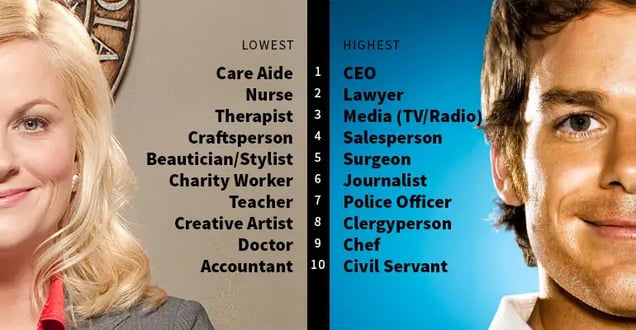If you’re convinced your CEO is a psychopath, I have some news for you.

You might be right.
I started thinking about this during research for my profile of Martin Shkreli, the Pharma CEO who raised the price of an AIDS drug by almost 5,000%.
His actions are despicable, but he came across as friendly and charming. My impression of him didn’t fit his actions. One of my conclusions is that Shkreli may be a psychopath.
That conclusion might sound extreme, but it isn’t. It turns out CEOs are way more likely to be psychopaths than any other job title.
This is the dictionary definition of a psychopath:
A person with a psychopathic personality, which manifests as amoral and antisocial behavior, lack of ability to love or establish meaningful personal relationships and extreme egocentricity.
In other words, s/he has some of these traits:
- Is superficially charming
- Has a gigantic ego or sense of their own importance
- Gets bored very easily
- Lacks remorse, guilt, or empathy
- Enjoys manipulating people
FACT: 4% of CEOs are psychopaths
About 1% of the human population are psychopaths. But CEOs are four times more likely to be psychopaths than the average person, according to journalist Jon Ronson. He spent two years researching this, and published a book titled “The Psychopath Test: A Journey Through the Madness Industry.”
I’m not surprised.
I can think of a bunch of CEOs who have demonstrated psychopathic traits. Apple CEO Steve Jobs was famous for yelling at his employees, and he denied paternity of his daughter for years. Donald Trump has built a brand – and presidential campaign – around his brash insults, hard-nosed reasoning, and egocentric behaviour.
Ronson argues that we shouldn’t be surprised that there are so many psychopathic CEOs. After all, capitalism rewards psychopathic traits: ruthless and driven attitudes that rule out kindness, remorse, and empathy.
But psychopaths have other traits that help them succeed.
They’re chameleons who can be charming while reveling in manipulating others and ravaging the lives of anyone in their path, Ronson said in an interview.
Psychopaths also tend to be cool under pressure and can be extremely intelligent with a single-minded drive to succeed. But it’s often their hubris and confidence that leads to their downfall.
Ronson argues that a psychopath’s lack of empathy leaves a kind of hole in the psyche. That space gets filled with a pleasure of manipulating others — and a lack of remorse or guilt about it.
Author Kevin Dutton also researched psychopaths for his book, “The Wisdom of Psychopaths: What Saints, Spies, and Serial Killers Can Teach Us About Success.”
According to him, these are the 10 professions with the lowest number of psychopaths… and the most.

CEO psychopath examples
 Former CEO Al “Chainsaw” Dunlap was often praised for ruthlessly downsizing failing companies and turning them around.
Former CEO Al “Chainsaw” Dunlap was often praised for ruthlessly downsizing failing companies and turning them around.
In 1994 he was brought in to downsize a company called Scott Paper. He fired 35% of employees in a restructuring that raised the stock by 225%. He published a book about his methods called “Mean Business: How I Save Bad Companies and Make Good Companies Great.”
But in 1998, Dunlap was disgraced while working as the CEO of Sunbeam. He was accused of editing sales dates to illegally jack up quarterly sales stats. Sunbeam filed for bankruptcy three years later.
In case you’re wondering, the personality traits that made Dunlap so good at his job translated into his personal life in frightening ways.
For example: he had a reputation for enjoying the process of firing people, he reportedly told his first wife that he wanted to know what human flesh tasted like, and he skipped his parents’ funerals, Ronson said.
Concerned that you or someone you know might be a psychopath? Consider taking this test (or getting them to do it).
Time to call the cops?
I took the psychopath test and got a 20. Not sure what that says about me. But when someone asks if I “need to take risks to feel alive” or “try to evade responsibility,” the answer is “hell yes.” The good news is my editors got even higher scores, so at least I know they won’t call the cops on me.